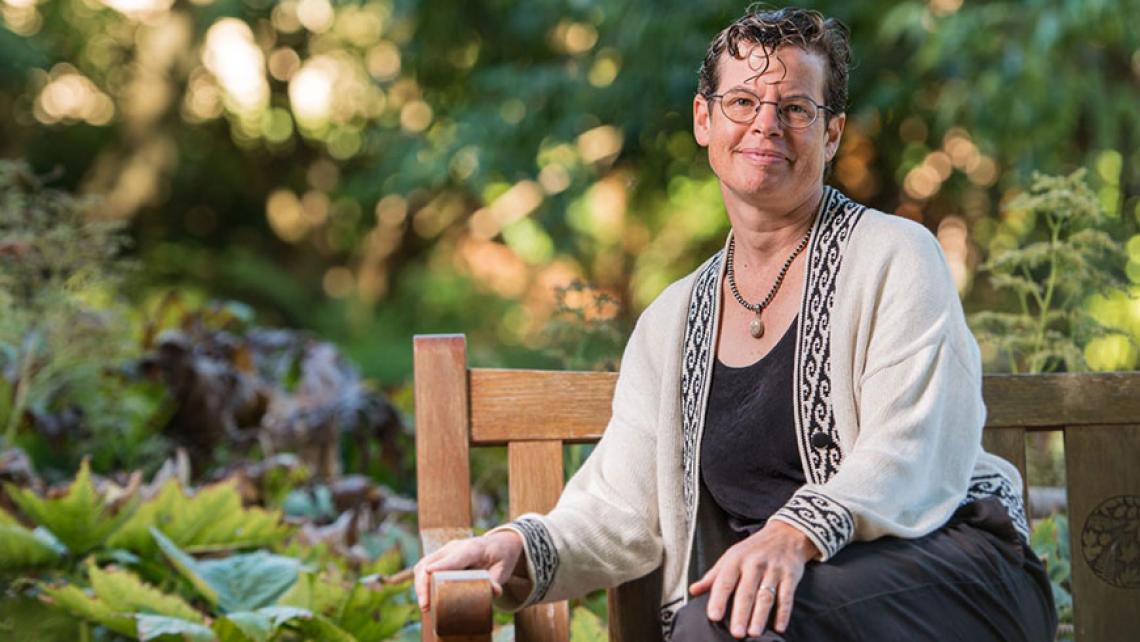UBC Biologist Wins MacArthur “Genius” Grant
September 20, 2011

September 20, 2011

Sarah Otto, a zoology professor and director of the Biodiversity Research Centre at UBC, is one of 22 people to be picked for this year’s round of ”genius grants” from the John D. and Catherine T. MacArthur Foundation.
Otto, a theoretical biologist, has focused on fundamental questions of population genetics and evolution, such as why some species reproduce sexually while others reproduce asexually, and why some species carry more than one copy of each gene. She has helped to make mathematical modeling a more accessible tool for fellow biologists, having co-authored a textbook on the power and rigor of quantitative analysis in biology.
MacArthur Fellows, as recipients of the grants are formally known, receive $500,000 payable over five years, no strings attached. Candidates, who must be citizens or residents of the U.S., are nominated by a specially selected group of about 100 people (their identities are not disclosed), and are chosen by a selection committee of about a dozen people (whose identities also are secret). Candidates are selected for their “exceptional creativity, promise for important future advances based on a track record of significant accomplishment, and potential for the fellowship to facilitate subsequent creative work.”
“As an evolutionary biologist at UBC, where I’m surrounded by so many creative people, I’ve been able to go places intellectually that I otherwise might not have explored,” Otto says.
“This is a wonderful recognition of Sally’s scientific brilliance and creativity,” says Simon Peacock, Dean of the Faculty of Science. “Her insights into evolutionary processes have already made a huge impact on science, and she is a key reason that UBC ranks among the world’s leaders in evolutionary biology and biodiversity. This award ensures that she will make even greater scientific contributions in the years to come.”
Otto, a Canada Research Chair in Theoretical and Experimental Evolution, learned about her award two weeks before the news went public, by way of a cryptic e-mail, telling her about some wonderful news and that she should respond right away. Otto thought it might be spam.
“I was just about to delete it when I noticed the e-mail address, ‘macfound.org,’” Otto recalls.
After some online investigating, she realized that the e-mail came from the MacArthur Foundation. When she called the person, her first question was, “Is this what I think it’s about?”
The foundation asked her to keep the news a secret, but she could tell one other person of her choosing. She violated that rule slightly, sharing the news with her partner, a professor of zoology, and their 9-year-old son, Wilson.
“The MacArthur Fellowship gives people the freedom to be creative, giving them room to focus on what they do well,” Otto says. “So I am going to take that to heart and carve out more time for the math and science that I love doing.” She is just starting to think about specific ways she will use the stipends.
Otto received a B.Sc. (1988) and a Ph.D. (1992) from Stanford University, joining UBC in 1995 as an assistant professor of zoology. She is the co-author of A Biologist’s Guide to Mathematical Modeling in Ecology and Evolution (2007), and her scientific articles have appeared in such journals as Science, Nature, PNAS, and Evolution.
Typically 20 to 30 Fellows are selected each year. Between June of 1981 and September of 2011, 850 Fellows have been named.
UBC has one other recipient of a MacArthur Fellowship – Loren H. Rieseberg, a professor in the department of botany, and also a member of the Biodiversity Research Centre. He was named a fellow in 2003.
We honour xwməθkwəy̓ əm (Musqueam) on whose ancestral, unceded territory UBC Vancouver is situated. UBC Science is committed to building meaningful relationships with Indigenous peoples so we can advance Reconciliation and ensure traditional ways of knowing enrich our teaching and research.
Learn more: Musqueam First Nation